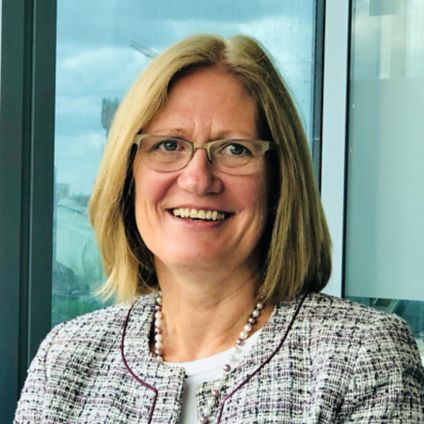It would be fair to say that the last couple of years have been tough on everybody. There's generally no shortage of issues disrupting the world and the COVID-19 pandemic has added to them. Businesses have been hit hard and many are still struggling. Organized crime sits in and among all of this with the pandemic opening up further opportunities to exploit the vulnerable in society. Criminals have taken advantage of the current societal challenges to become more targeted and sophisticated in their attacks, particularly through the internet. Industry, particularly the financial sector, is coming under pressure to do more to prevent criminals benefiting from their crimes, but more of the same is not the answer.
For a long time, the regulated sector, particularly banks, have invested significant resources in combating the negative effects of financial crime, but I don't believe it is having the desired impact. The regulatory pressure on firms to get their financial crime programs compliant and effective has never been greater and, despite this, there is evidence to show that firms are still falling short of expectations. In addition, the financial marketplace is changing with new and innovative entrants across the banking and payments landscape, challenging the traditional players. With compliance costs on the rise, a business model under pressure and an ecosystem that is considered not effective in reducing loss and harm to society, there's a need to address this challenge in a different way.
Working together toward a common goal
In my view, financial crime programs need to become more integrated within and between firms.
Firms are starting to look at how to connect their internal programs, particularly at an operational level, leveraging data and technology in ways that deliver more automation and simplification, as well as drive more effectiveness and efficiency. Connecting the firm allows the management and oversight of a number of risks in a more holistic way.
In support of this connectedness, financial crime is moving towards an economic crime agenda. Fraud, money laundering, terrorist financing, sanctions, market abuse, bribery and corruption, tax evasion and modern slavery - all viewed under a lens of criminality - are managed through a collection of interconnected processes and frameworks, including as it relates to the ESG agenda, where both the environmental and social aspects cut into the economic crime program. Bringing the operational organization together, particularly around data, and leveraging new tools, such as entity resolution and network link analysis, can create the capacity to see criminal networks lurking within the customer base. More mature organizations are moving away from stovepipe processes that sit independent of each other. These organizations are implementing a more interconnected system that allows them to enhance their effectiveness through leveraging the collection of tools and expertise at their disposal, helping to protect them and their customers from falling victim to criminal targeting.
In support of the above, the theme of connectedness extends outside the firm. Across several jurisdictions public-private partnerships are underway, becoming a core part of a more targeted national approach to tackling economic crime, demonstrating the benefits of collaboration. Joint operational centers and central utilities are being explored to enable those operating in the ecosystem to work more closely together, sharing information and intelligence to better understand key threats and target resources accordingly. While it is accepted that legal barriers, cultural differences and technical limitations impede the delivery of transformative change in this area, work is underway to address these issues.
This is an area that has seen significant investment over the last 20 years and is expected to continue as organizations look for the transformation opportunities that not only drive enhanced effectiveness, but also provide the efficiencies that are sought and needed. KPMG professionals have the expertise and tools to help you get there from internal operational redesign to working with the wider ecosystem. KPMG firms are globally connected, working with clients on a national and global scale, and can bring insights from different parts of the KPMG global organization to help solve your challenges and enable your transformation.


